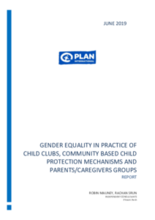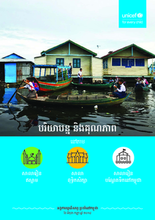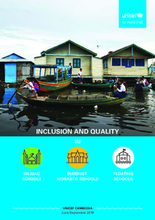This country page features an interactive, icon-based data dashboard providing a national-level overview of the status of children’s care and care reform efforts (a “Country Care Snapshot”), along with a list of resources and organizations in the country.
demographic_data
childrens_living_arrangement
children_living_without_bio
social_work_force
key_stakeholders
Key Stakeholders
Add New DataOther Relevant Reforms
Add New Datadrivers_of_institutionalisation
Drivers of Institutionaliziation
Add New Datakey_research_and_information
Key Data Sources
Add New DataMapping of residential care facilities in the capital and 24 provinces of the kingdom of Cambodia
National estimation of children in residential care institutions in Cambodia: A modelling study
Prevalence and number of children living in institutional care: global, regional, and country estimates
Shaping the national social protection strategy in Cambodia: Global influence and national ownership
Towards a Social Protection Strategy for the Poor and Vulnerable: Outcomes of the consultation process
Country Care Profile: Cambodia
Acknowledgements
Data for this country care snapshot was contributed by partners at Family Care First and UNICEF Cambodia.
Displaying 81 - 90 of 285
UNICEF is seeking a Child Protection Specialist in Cambodia.
UNICEF Cambodia is looking for an internal candidate for the position of Chief of Communication.
In this blog post from the Georgetown University Berkley Center for Religion, Peace & World Affairs, Sarah Chhin - technical advisor to M’lup Russey, an NGO in Cambodia that assists orphans and vulnerable children - describes an incident in which foreign volunteers tried to block efforts to close an orphanage in Cambodia and reintegrate those children into families, describing the impacts of orphanage voluntourism and calling on volunteers, agencies, and charities to support communities and families rather than institutionalization.
In this blog post from the Georgetown University Berkley Center for Religion, Peace & World Affairs, Stacie Ellinger of Children in Families (a Cambodian NGO) writes about a new program that CIF has launched called Rok Kern, which "offers an alternative program to community groups that would ordinarily visit orphanages in Cambodia."
The purpose of this study is to better understand how gender inequality impacts the Community Based Child Protection Mechanisms in Cambodia, its child clubs and caregiver groups and how programming should be targeted to being gender transformative – changing social norms that promote gender inequality.
The purpose of this formative research is to inform the social and behaviour change communication and community capacity strengthening strategy for Better Beginnings.
The Associate Technical Director, Child Protection will lead the Family Care First (FCF) technical team and support and advise the Chief Party across all technical child protection and welfare issues on FCF.
This article from Spiegel Online explains how orphanages in Cambodia often exploit children, recruiting them as "tourist attractions" for visitors.
This research study was commissioned to generate a better understanding of three school communities in Cambodia: Islamic schools, Buddhist monastic schools, and floating schools with a focus on identifying challenges in delivering quality and inclusive education.
This research study was commissioned to generate a better understanding of three school communities in Cambodia: Islamic schools, Buddhist monastic schools, and floating schools with a focus on identifying challenges in delivering quality and inclusive education.



